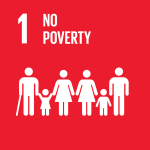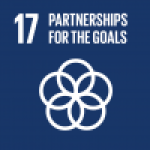WELCOME REMARKS by Ms. Sonali Dayaratne, Deputy Resident Representative, UNDP Cambodia, October 28, 2020
H.E. Mr. Mao Hak, Deputy Director General, Technical Affairs, MOWRAM
H.E. Dr. Lonh Hill, GEF Operational Focal Point in Cambodia
H.E. Khun Sokha, Head of Training Department, NCDM (National Committee for Disaster Management)
Representatives of the Ministries of Environment; Agriculture, Fisheries and Forestry (MAFF; and Women’s Affairs;
Representatives of bilateral and multilateral agencies, INGOs and NGOs as well as broader development partners community;
Excellencies, colleagues, ladies and gentleman,
It is a pleasure to be with you all here in the presentation of the results from the GEF-Least Developed Countries Fund-funded project on Strengthening Climate information and Early Warning Systems in Cambodia;
We express our gratitude to all national counterparts for the collaboration demonstrated throughout project implementation.
Some of you attended the meetings that UNDP organized at the start line of this project; it has been a long road.
Particularly for today’s closing workshop, we are here to present what we have achieved…. what the lessons learned are, and what could be next in terms of sustainability. We are grateful for the attendance of other development partners; and we hope we could continue working together; looking at new paths building on the results and lessons.
As you know, any project is framed by its logframe, which functions as a results and M&E tool. We are pleased to say that we have done all that was required by this project’s logframe – and even gone beyond the objective in some respects.
One of the key objectives of the project was supplying Cambodia with a climate infrastructure facility. The number of automatic stations that we installed is notable – 53 stations across the country, comprising of 24 Automatic Weather Stations and 29 Automatic Hydro Stations. These are all in keeping with WMO-requirements, and compliant with Cambodia’s standard mandated by Cambodia's Ministry of Water Resources and Meteorology (MOWRAM).
As we installed the stations, we found out a lot of inspiration from community involvement and contribution towards climate information and early warning in the field. We documented them in articles and videos, which are all on display today. We documented progress towards results, and this is available online on UNDP’s global climate adaptation website as well as UNDP Cambodia's website.
Excellencies, ladies and gentlemen,
As you know, our project is not only about installing hardware. We worked in setting up a hydro-meteorological platform, capable of managing the data from the stations in Cambodia, including data generated from the automatic hydro & meteo stations that our project installed. This was requested by MOWRAM at the inception stage of the project.
Beyond data management, the system is also capable of climate modeling. It is thus able to detect extreme events based on the recorded data from the stations.
As this project shows, climate information and early warning systems is not only about installing hardware and software. It is also about applying climate data for better sectoral development planning. We work with the Ministry of Agriculture, Forestry and Fisheries on drought management and initiating drought-specific training at the provincial level, with our local partner Dan Church Aid. A national drought study was commissioned by the project – a risk assessment, and recommendations for drought monitoring and adaptation. It demonstrates the need for a lot of more intensive work to be done in the country.
The climate phenomenon should not be forgotten. Historically, like floods, droughts have also hit the country. From 1980, the country experienced drought around 17 times, including the 1982-83 event relating to a very strong el-Niño leading to extensive food shortages. The 2016 drought directly affected 2.5 million people in Cambodia, and indirectly impacted the country as a whole.
Our work in early warning applications in agriculture is in line with MAFF’s Climate Change Priority Actions. This is one activity that we can focus on, after we generate climate data from our weather and hydro stations.
With People in Need, we also worked with the National Committee for Disaster Management (NCDM) and Provincial Committees for Disaster Management (PCDM) in rolling out EWS1294, a sms-based tool to inform local populations on impending and potential hazards.
We are also grateful for our collaboration on gender equality, with Action Aid Cambodia, on training Women Champions and developing Charters of Demands. We want to make sure that women can raise their voice and can be the leaders in EWS and DRR. A gender learning report was also produced by our project.
Importantly, with NCDM, we continue to work on developing a National Action Plan for DRR in Cambodia, which was endorsed by the Inter-ministerial meeting.
Excellencies, colleagues, ladies and gentlemen,
We are very pleased to have come this far. My colleague, Mr. Muhi Usamah, will make a more detailed presentation on results and lessons. As noted earlier, there is also a lot of information on the web, and we encourage you to use your phone to check every result that has been digitalized.
On behalf of UNDP, let me express our gratitude to MOWRAM, MAFF and NCDM, as well as all our other partners, for our close collaboration. This is not certainly the end, but the start for more collaborative efforts to support Cambodia on climate information and early warning systems. There will be more to do after this project, and we hope that together we could open new paths to ensure that this climate action is continued in Cambodia.
Thank you for attending this workshop. We look forward to your contributions, in identifying actions for sustainability and for continuing to build on what has been achieved.
Links
Project photo book showcasing results of the project: 'Weather Stations, Women Champions and Water Management: Changing the Face of Early Warning in Cambodia', available in Khmer and English language.
For stories, videos and reports from the project, please visit the project page here.



